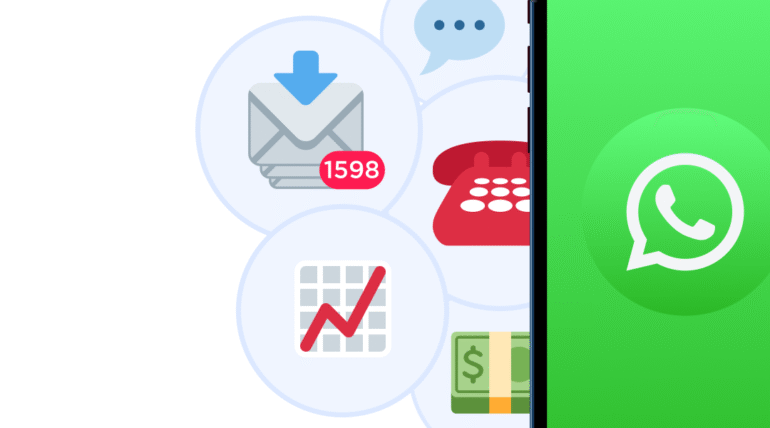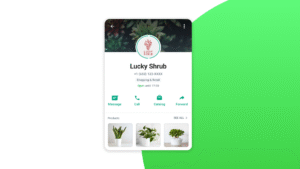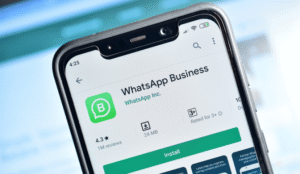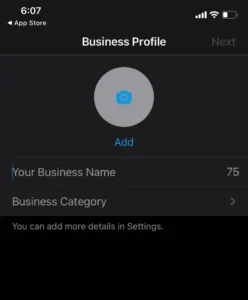 August 16, 2025
August 16, 2025
Every day, thousands of Nigerians launch their new Nigerian ecommerce sites with grand dreams of becoming the next Jumia.
They spend months perfecting their websites, obsessing over payment gateways, and crafting the perfect product descriptions.
But when visitors start trickling in, they’d browse for thirty seconds and disappear, leaving behind shopping carts, filled or not.
Then, you’d realize it was never about fancy websites in Nigeria. Tech bros might be able to build you the next Shopify clone, but it’s WhatsApp Business Nigeria recognizes – the same app everybody and their grandmas use to send good morning messages.
But the mathematics behind it is simple: nine of every ten Nigerian online stores are highly prone to closing within their first year. Chief among other things, is they’re fishing in empty waters while the ocean teems with opportunity right next to them. WhatsApp has 90 million active users in Nigeria.
Your website? Maybe 50 visitors on a good day.
And unless you’re ready to spend serious money to optimize traffic, conversion strategies and leads, bringing the business where people are should be your first priority. Nigerians don’t shop where businesses want them to shop. They shop where they already live, chat, and trust.
That happens to be WhatsApp Business at the moment.
In this piece, we’ll guide you on how to properly set up your ecommerce business on WhatsApp Business, with minimal cost.
Trust, then Platform
Anyone who’s ever shopped online knows this dance: find product, love product, hesitate, check reviews, Google the business name, ask friends “Have you heard of this business?” Then maybe, possibly, consider buying.
Who can blame them for performing so much trust audit? Folks have paid for products that looked nothing like the photos, received fake items or just got scammed outright.
If you’re new to the Nigerian ecommerce landscape, you’d better come correct or don’t come at all!.
This is why building your website first is backwards thinking. You can have the most beautiful site in the world, complete with testimonials, security badges, and professional photography. But when customers can’t verify your reputation through their networks, they won’t even look at their carts twice before bouncing.
WhatsApp Business solves the trust problem for you. When you start by operating through WhatsApp, customers can see your business profile, check when you were last online, and most importantly, they can screenshot your conversations to share with friends who might vouch for you.
As you begin steadily, the economics make even more sense. You’re sure to spend about ₦30,000 to ₦100,000 monthly on hosting, domain renewal, security certificates, and maintenance for an Ecommerce. Let’s not even get into how much you’ll spend on marketing it.
On the other hand, a WhatsApp Business account costs exactly nothing to maintain. Every naira you would have spent on technical infrastructure goes directly into inventory and marketing.
At the end of the day, WhatsApp offers you that relationship velocity, where trust can develop within a single conversation thread because customers experience your responsiveness, personality, and reliability in real-time.
Getting Started on WhatsApp Business Nigeria
We can now consider the step-by-step process of starting your business on WhatsApp Business. Thankfully, Zuckerberg and Meta have ensured that setting up a business account on the platform is just as easy as the personal one – which you’d agree is pretty off-hand easy to many Nigerians.
Step 1: Download and Install

Download WhatsApp Business from Google Play Store or App Store. It’s different from the regular WhatsApp app (check the screenshot below), but not to worry, the app is just as identical to its regular sibling, so you don’t have to relearn much. Once installed, open it immediately.
The app will detect if you have regular WhatsApp installed and ask whether you want to migrate your personal account to business. Choose “use a different number” instead, unless you want business conversations mixed with family messages (we don’t advise that, obviously).

Step 2: Register Your Business Number
Next, select your country, enter the phone number you want to use for business, click Next, then enter the 6-digit SMS verification code. Note that this number becomes your business identity, so choose wisely.
We recommend that you use a dedicated business line if you have one. If you don’t, get a separate SIM card before you start selling. When customers save your number or check on Truecaller, they should see your business name, not a personal name.
Step 3: Set Permissions
The app will request routine access to contacts, photos, videos, and files. Grant these permissions. If you have an existing WhatsApp backup, the app will offer to restore it. You can skip this unless you’re migrating from personal to business use of the same number.
Step 4: Build Your Business Profile
This step is crucial, as it will determine whether customers trust you enough to buy or scroll past you like spam. Your business profile should clearly communicate who you are, what you offer, and how customers can reach you.
- Display Name: Choose your display name carefully. It should match your registered business name to build trust. “Chidi’s Phone Repairs” works better than just “Chidi” or “Best Phone Guy.” Also note that changing your display name later may cause you to lose your “Official Business Account” status, so get this right the first time.
- Business Logo: Add a clear, high-quality logo using 640 x 640 pixels for best results. If you don’t have a professional logo, use a clean photo of your best product or storefront. Avoid blurry selfies or random graphics.
- Business Category: Select the right category to help customers immediately understand your services. This affects how you appear in searches and what features become available to you.
- Business Description: Use under 256 characters to highlight what your business does, who you serve, and what makes you unique. Write like you’re explaining your business to a neighbor, not like you’re filling out tax forms.
- Business Hours: Set accurate business hours so customers know when you’re available. Being transparent about availability prevents frustrated customers and improves your response rate statistics.

Step 5: Configure Essential Business Features
Next, set up automated greeting and away messages to stay responsive even when you’re busy. Your greeting message should welcome new customers and explain what you offer. Your away message should tell customers when you’ll respond and how urgent issues get handled.
Create quick replies for common questions – pricing, availability, delivery options, payment methods. These save time and ensure consistent answers.
Use labels to organize conversations by categories like “New Lead,” “Pending Payment,” or “Order Completed” to stay organized as your customer base grows.
The entire setup process costs nothing but time – itself mere minutes when done right. You might need a website further down the road, but setting up a WhatsApp Business account helps you build the foundational business relationships with customers who already trust and use WhatsApp daily.
Other Details WhatsApp Business Nigeria Users Should Note
You’ve now found out how easy it is to set up your WhatsApp Business; go forth and multiply your sales. Below are some extra details that can help you keep your conversation rate on the positive incline:
Master Your Status Updates Strategically
Your WhatsApp Business Status isn’t just for sharing motivational quotes. Use it to share updates, promotions, or business milestones using visuals and engaging captions. Post product demonstrations, customer testimonials, and behind-the-scenes content that builds trust.
WhatsApp statuses disappear after 24 hours, and that hasn’t changed on WhatsApp Business. So use the urgency to create limited-time offers that drive immediate action.
Time your status updates when your customers are most active – typically between 7-9 AM when people check messages before work, and 6-8 PM after work hours. Space out your posting frequency, so as to remain on top of your customers’ status updates.
Lastly, religiously track which types of status content generated the most inquiries and focus your efforts there. Thankfully, WhatsApp Business gives you all that analytics to make it easier for you.
Optimize Your Catalog for Sales Psychology
Don’t treat your catalog section like a product dump. It’s meant to showcase your products or services, but still need to do that strategically. List your highest-margin items first because customers often make decisions based on what they see immediately.
Write product descriptions with intent: make it address real Nigerian customer concerns directly. Instead of technical specifications, focus on practical benefits: “Delivers nationwide within 3 days” means a lot to folks than “Advanced logistics integration.”
Use high-quality photos that show products in use, not just stock images. Website or WhatsApp Business, Nigerian shoppers deserve to see how products look in real Nigerian environments and lighting conditions.
Understanding Broadcast Lists and Their Limitations
Broadcast lists is a feature on WhatsApp that lets you send updates to multiple contacts while maintaining privacy. They only work with contacts who have saved your number, which means it’s a feature you use for relationship building rather than mass marketing.
Create separate broadcast lists for different customer segments: new leads, repeat customers, and high-value clients. Send different messages to each group based on their relationship with your business. New leads need trust-building content, while repeat customers respond better to exclusive offers.
Leverage Labels for Business Intelligence
Use the labels feature in WhatsApp Business to organize chats beyond basic categories. Create labels that track customer behavior: “Ready to Buy,” “Price Sensitive,” “Bulk Buyer,” “Needs Follow-up.” It will help you prioritize conversations that are most likely to convert.
Review these labels weekly to identify patterns. If too many customers are labeled “Price Sensitive,” your pricing might be off-market. If many conversations stay in “Needs Follow-up,” then it’s your response system that needs improvement.
Message Timing and Response Strategy
Nigerian customers, just like anyone else, expect faster responses on WhatsApp than they do via email or phone calls. On WhatsApp Business, you can set up automated away messages that give specific response timeframes: “I’ll reply within 2 hours during business hours” works better than “I’ll get back to you soon.“
Wrapping Up
Congratulations, you now have the framework that works in the Nigerian ecommerce market. Remember, trust must precede platform investment. Nigerian customers buy from businesses they can verify through their networks, and WhatsApp Business provides that verification through real-time conversations and social proof.
When you operate where your customers already spend hours daily, you eliminate the first barrier to online commerce: getting people to visit your store.
And there’s no reason to complain: WhatsApp Business Nigeria setup process takes under 10 minutes and costs nothing to maintain. In contrast, traditional e-commerce sites will set you back ₦30,000 to ₦100,000 monthly just to stay online.
Your WhatsApp Business profile can become your storefront, customer service center, and relationship management system simultaneously when you use the catalogs, broadcast lists, labels, and status updates features properly.
Once your WhatsApp Business generates consistent revenue and proves your market demand, you can always invest in a traditional website. Many successful Nigerian e-commerce companies use this progression: establish trust and sales through WhatsApp, then expand to websites for broader reach and advanced features.
When you’re ready to make that jump, we’re here to help you. Check out our bigger Nigerian ecommerce playbook to get all the technical details around ecommerce platforms.